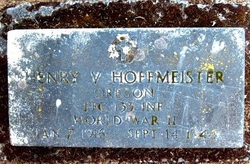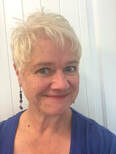
Perhaps I only remember the holiday as a sunny one because the number one priority of the day was visiting two cemeteries which seemed so far from my home and tending two year-long neglected graves with hand shovels, weeders and new plants.
As children often do, we went along with the tradition as if it were something all families did on that day. We’d rise at our normal 6 am time and eat breakfast as a family. Dad would gather us to help clean up the breakfast items and do the dishes while Mom would prepare the picnic basket. Into the car would go the gardening tools, gloves and plants along with our Car Bingo game. I truly can’t remember carrying much else to keep us occupied -- that is what car windows were for. With the radio blaring Indy 500 pre-race jabber, we headed for Estacada. Estacada was less than 30 miles away but may as well have been 500 hundred miles away. It took so looooong to get there.
In those days “out of town” was only 29 blocks away. busy city streets soon became windy roads through dairy farms, and countryside. The smells changed from pavement to fir trees and green grass.
In my youngest days, its was hard to understand why we had to stop at two cemetaries. The first one was the grave of a baby. Douglas Clayton Hoffmeister. Born September 10, 1944- Died September 20, 1944. The grave site seemed so old and the incident foreign and unclear. I just knew. My Mom worked silently and furiously, pulling weeds and clearing away the overgrowth. I don’t know what she was thinking, and quite possibly she was simply focused on the job at hand. I just remember a blue handled hand-hoe that got a pretty good work-out. At the end of the task, the gravestone was swiped down and cleared of grass trimmings and moss. I vaguely remember using a stick to clean moss out of the etchings on the headstone. That act seemed to connect me to the “soul” of the story - a story I didn’t yet know.
Dad stayed in the car.
On to the next cemetery we went to the grave of Victor Hoffmeister, a fallen hero of World War II. I knew that because, even with the weeds and overgrowth, there was still a flag planted at his headstone. The process of quietly cleaning up was repeated and by this time you could hear the Indy 500 from the radio in the car where my Dad sat.
I remember the swoosh of my Mom’s sundress as she knelt down to start the cleanup; the essence of White shoulders wafted from the air as it passed over me. I don’t remember smiling. Perhaps in this moment is when the empathetic side of me first peeked out. I remember an ache in my heart and my face feeling, if not showing, the grief that finally emanated from my Mother’s heart. I know now, that she was protecting us from the grief she felt and masking her feelings to keep the confusion away - both hers and ours.
Dad still sat in the car. That’s what was confusing. My Dad was a hard worker, and when there was a task to be done he would never leave my mother alone. He always encouraged teamwork and helping each other out. Why was he letting my Mom work so hard on this holiday? Perhaps it was because he was a veteran of World War II and he wasn’t supposed to work on this holiday. That’s how we celebrated Mother and Father’s Day. No work allowed for the celebrated parent.
The work done, Dad would emerge from the car and help us clean up and stow the tools back in the trunk. I remember rinsing our hands under a faucet. Sometimes we stayed and opened the picnic basket right there and ate our sandwiches, cookies and fruit. Other times we would head the couple of miles to Grandma and Grandpa’s house and visit awhile before heading back to the city.
Over the years, the veil gradually lifted as the story of those two graves were revealed. I don’t remember who told me and the fact that my father first did the heavy shoveling and weeding before he retreated into the car only solidified my respect for him. I do remember the feelings of grief and sadness as I would look at my mother in a different light when she worked so feverishly at the graves of her first husband and childhood sweetheart and the son he never knew. Killed in Italy, the telegram announcing the baby’s birth crossed with the telegram from the Red Cross delivering the news of his death to my Mother, newly a mother herself. The baby died within days.
I gained a new respect for my mother, who at the young age of 20 became a war widow and had lost her only child.
And I honored and respected my father and the wisdom and possibly restraint it took to “retreat”to the car to allow my mother to grieve in love for two people he did not know, would never know and existed in a part of her heart he would never share. He was heroic in my eyes. My dad, a World War Vet himself, experiencing the clean-up of Dachau and the horrors of War, knew enough to stand-down in this moment. He may as well have saluted the fallen hero. He did with his heart.
 RSS Feed
RSS Feed

